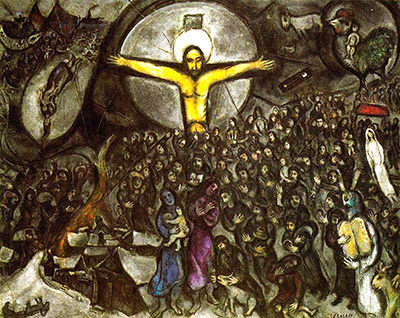Torah: Vayikra (Leviticus) 25:1 – 27:34; Haftarah: Jeremiah 16:19 – 17:14
SHEMITTAH, the Sabbatical Year, and YOVEL, the Jubilee Year
Vayikra 25: "And the LORD spoke to Moshe on Mount Sinai, saying, “Speak to the people of Israel, and say to them, ‘When you come into the land which I give you, then shall the land keep a Shabbat for the LORD. Six years you shall sow your field, and six years you shall prune your vineyard, and gather in its fruit; but in the seventh year shall be a Shabbat of rest for the land, a Shabbat for the LORD; you shall not sow your field, nor prune your vineyard. That which grows of its own accord of your harvest you shall not reap, nor gather the grapes of your vine; for it is a year of rest [SHEMITTAH] to the land.
”And you shall count seven Shabbats of years to you, seven times seven years; and the space of the seven Shabbats of years shall be to you forty and nine years. Then shall you cause the shofar to sound a broken blast [teruah] on the tenth day of the seventh month, in the Day of Atonement shall you sound the shofar throughout all your land. And you shall hallow the fiftieth year and proclaim liberty throughout all the land to all the inhabitants of it; it shall be a jubilee [YOVEL] to you; and you shall return every man to his possession.’
”Therefore you shall do My statutes, and keep My judgments, and do them; and you shall dwell in the land in safety. And the land shall yield her fruit, and you shall eat your fill, and dwell in it in safety. And if you shall say, ‘What shall we eat the seventh year? behold, we shall not sow, nor gather in our produce;’ Then I will command My blessing upon you in the sixth year, and it shall bring forth fruit for three years. And you shall sow the eighth year, and eat still of old fruit until the ninth year; until its fruits come in you shall eat of the old store... The land shall not be sold forever; for the land is Mine; for you are strangers and sojourners with Me. I am the LORD.”
SHEMITTAH - the Sabbatical year, and YOVEL - the Jubilee year, teach that true joy of life comes when man stops striving for material gain in favor of spiritual growth. It teaches that the source of physical sustenance, as well as the spiritual one, is not the world but God. He is the provider of everything that man needs, physically and spiritually.
But man cannot totally separate from the world he lives in, that is why Shemittah is only once in seven years, just as is the Shabbat every seventh day. This infuses holiness and purpose into work-years and work-days. Just as the days of the week are days of preparation for Shabbat so, too, the six years preceding the Shemittah were lived in anticipation of God's blessing of an abundant crop. The comparison between Shemittah and the Shabbat is that both bear testimony of God’s creation and His blessings. God is the creator of the material world and He is the provider of everything man needs for his sustenance, therefore, He can cause an abundant crop to last for three years; if man would only obey His commandments, have faith and believe.
On the Yovel, the Jubilee Year - every fiftieth year - all property should have been returned to its ancestral heritage, to its original owner. But what is interesting is that God says in the same passage that all land is His. Therefore, the returning of property is symbolic of worshiping and serving God with all that He has given us, because man is but a stranger and a sojourner on this earth. God's people are to be detached from the earthly things because their allegiance is with God.
The Jubilee Year, the year of property release, should have been announced on the Day of Atonement, Yom Kippur, with the blowing of the Shofar with the sound of teruah, the succession of nine tremulous sounds of alarm. But what we have to understand is that there are two different occasions when the sound of teruah is to be heard, on Rosh haShanah and on Yom Kippur.
The teruah of Rosh haShanah, as outlined in Chapter 23, is the yearly calling of Israel to repent and return to God. This teruah, in its prophetic fulfillment, represents the day described by the prophet Zechariah 12:10: “'In that day... I will pour out on the house of David and on the inhabitants of Jerusalem, the Spirit of grace and of supplication, so that they will look on Me whom they have pierced.' And they will mourn for Him, as one mourns for an only son, and they will weep bitterly over Him like the bitter weeping over a firstborn.” The teruah of Rosh haShanah is the day when all Israel will recognize Yeshua as their Messiah and will feel and express the deep sorrow for not recognizing Him for all these centuries and for missing out in having a close relationship and fellowship with Him. In that day Yeshua will show them His nail-driven hands and tell them: "Look, I have inscribed you on the palms of My hands" - Isaiah 49:16.
But the teruah of Yovel is the fulfillment of the prophecy given by Zechariah further in chapter 13:1: “In that day a fountain will be opened for the house of David and for the inhabitants of Jerusalem, for sin and for impurity.” God will announce through the Shofar blasts that Atonement has been made for all Israel and that they have been freed from sin and impurity - all Israel will be saved. God's people will become again a nation of priests, a light and a blessing to the world.
The blessings of the Jubilee Year, the fiftieth year after the counting of a succession of seven sabbatical years, alludes also to the blessings of the counting of the Omer for seven completes Shabbats with the fiftieth day as Shavuot. On Shavuot it was the crowning of God's commandments by the giving of the Torah and the infilling of believers by the Ruach haKodesh, the Holy Spirit.
Parashah "Behar" ends with an instruction that distills all other commandments into two basic principles: "You shall observe My Shabbats, and revere My Sanctuary; I am the LORD" Vayikra 26:3. Observing the Shabbat and having reverence for His Sanctuary are the prerequisite of starting to live a holy life. The Shabbats are in the plural form because it is a reference not only to the weekly Shabbat but also to the other seven Holy Days previously enumerated in chapter 23. Reverence for the Sanctuary is not reverence for the building or the objects within it but for what they represent and ultimately for God.
The next Parashah, "Bechukotai," ends the book of Leviticus, a book filled with godly instructions, but the principles of all these instructions written for Israelis to live a holy life dedicated to God, apply also to us in our day-and-age. Yes, “by grace you have been saved through faith; and that not of yourselves, [it is] the gift of God” Ephesians 2:8, but, even though we have been saved by the shed blood of our Messiah Yeshua — and no amount of mitzvoth can earn this salvation — our walk as believers must be guided by the instructions of our Holy God. Someone may say, “You have works and I have faith." In other words, someone may believe that being saved - having faith - means not obeying any of God's commandments. But the apostle emphatically states, "Show me your faith without the works, and I will show you my faith by my works" James 2:18. Our faith is reflected in our mitzvoth, in our obedience to God's commandments of good works. We are not saved by good works but for good works. Just as a life of sin and disobedience will have a negative impact and will leave scars in our lives so, too, a life lived in obedience to God will have a positive impact in our lives and in the lives of the people around us. It would be like an offering to God of sweet aroma.
Parashah "Bechukotai" contains the blessings for obeying God's teachings and the curses for abandoning them. The blessings and the curses are all hidden miracles, but both are a testimony that God is the provider of our physical as well as our spiritual needs – man does not live by bread alone. The spiritual life is intertwined with the physical one; therefore, there is no need for the Torah to state that people who engage in spiritual pursuits and serve God faithfully should receive spiritual rewards. But it is not natural that the performance of the mitzvoth should earn for an entire nation good health, prosperity and triumph over her enemies. It is not natural that the observance of Shemittah will enable a hundred Jews to pursue ten thousand enemies, and that the violation of the Shemittah will cause the nation to be exiled and helpless. The Torah’s intention, therefore, is to teach that obedience to God's commandments is of such magnitude that the blessings resulted from it may seem as miracles, defying the laws of nature.
"If you walk in My statutes, and keep My commandments, and do them, then I will give you rain in due season, and the land shall yield her produce, and the trees of the field shall yield their fruit. And your threshing shall last to the time of vintage, and the vintage shall last to the sowing time; and you shall eat your bread to the full, and dwell in your land safely. And I will give peace in the land, and you shall lie down, and none shall make you afraid... But if you will not listen to Me, and will not do all these commandments, and if you shall despise My statutes, or if your soul loathes My judgments, so that you will not do all My commandments, but that you break My covenant, then I will do the same to you."
What is interesting about the curses is that they are in direct correlation with our attitude towards God. If we do not listen to Him, if we despise His statutes and if we loathe His judgments, He will do the same to us; He will not listen to us, He will despise us and He will loathe us. The choice is ours. May none of us do these things but learn obedience to God. We need to imitate Yeshua’s holy life, as the apostle Shaul is teaching us: "Be imitators of me, just as I also am of Messiah" 1 Corinthians 11:1. And we need to heed Yeshua's words: “Take My yoke upon you and learn from Me, for I am gentle and humble in heart, and you will find rest for your souls” Matthew 11:29. Yeshua came on this earth for only one purpose, to do God’s will; and God’s will is to restore our fellowship with Him. If we follow Yeshua’s teachings we will find rest for our souls and the blessings of a holy life lived by obeying His teachings will seem miraculous.
Chazak! Chazak! Venischazeik! (Be strong! Be strong! And may we be strengthened!)
Shabbat joy, peace, and blessings! Shabbat Shalom!



